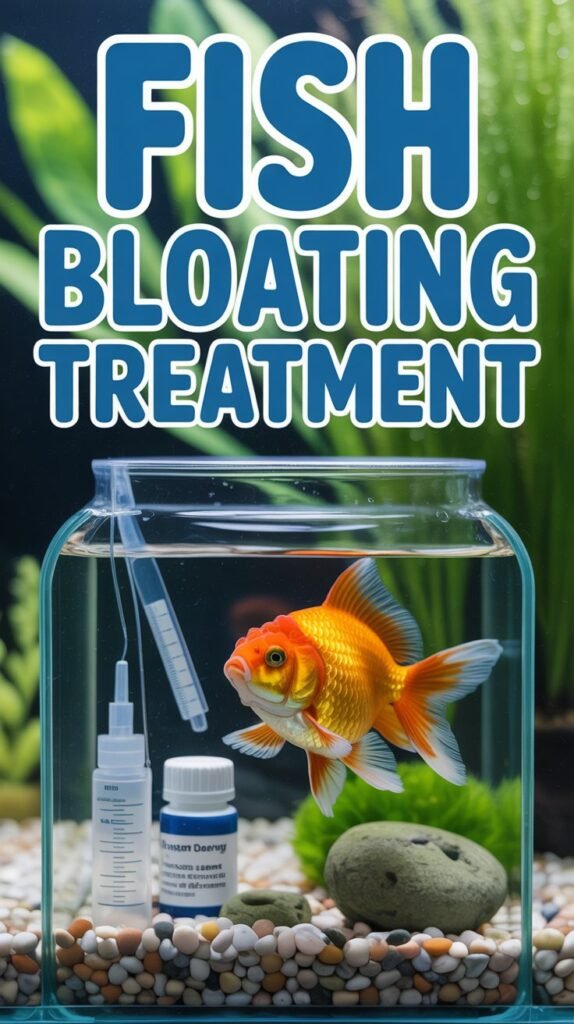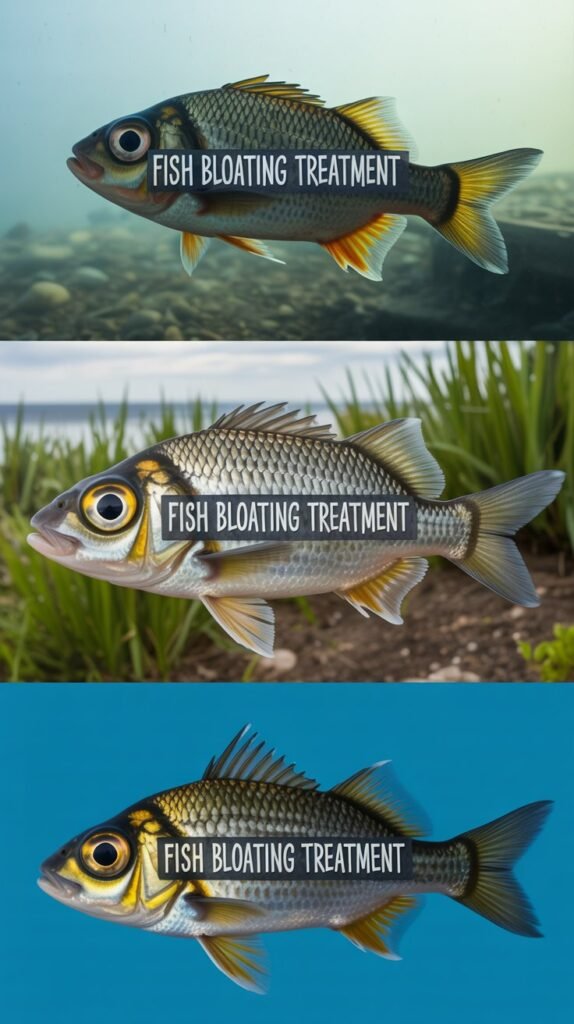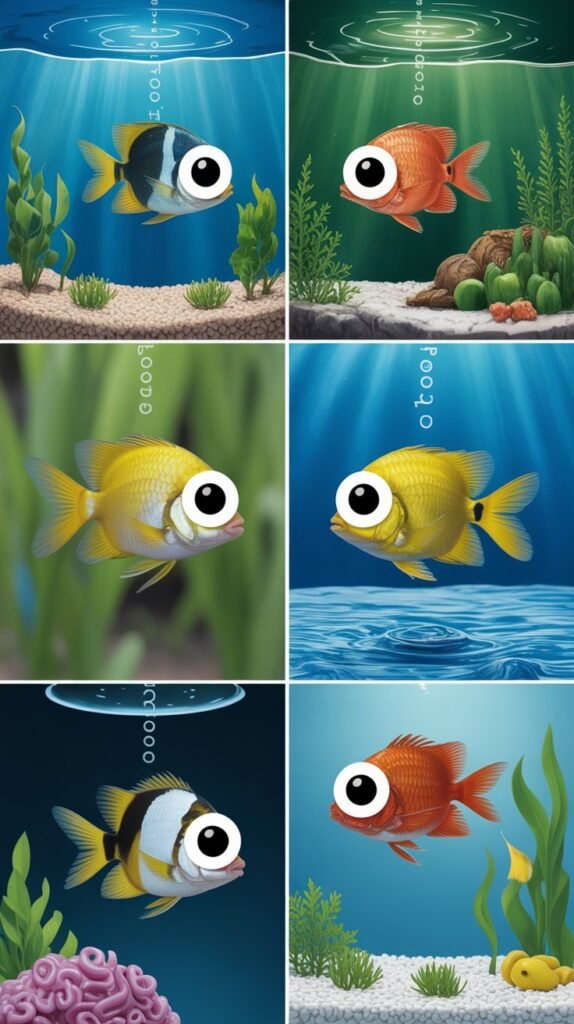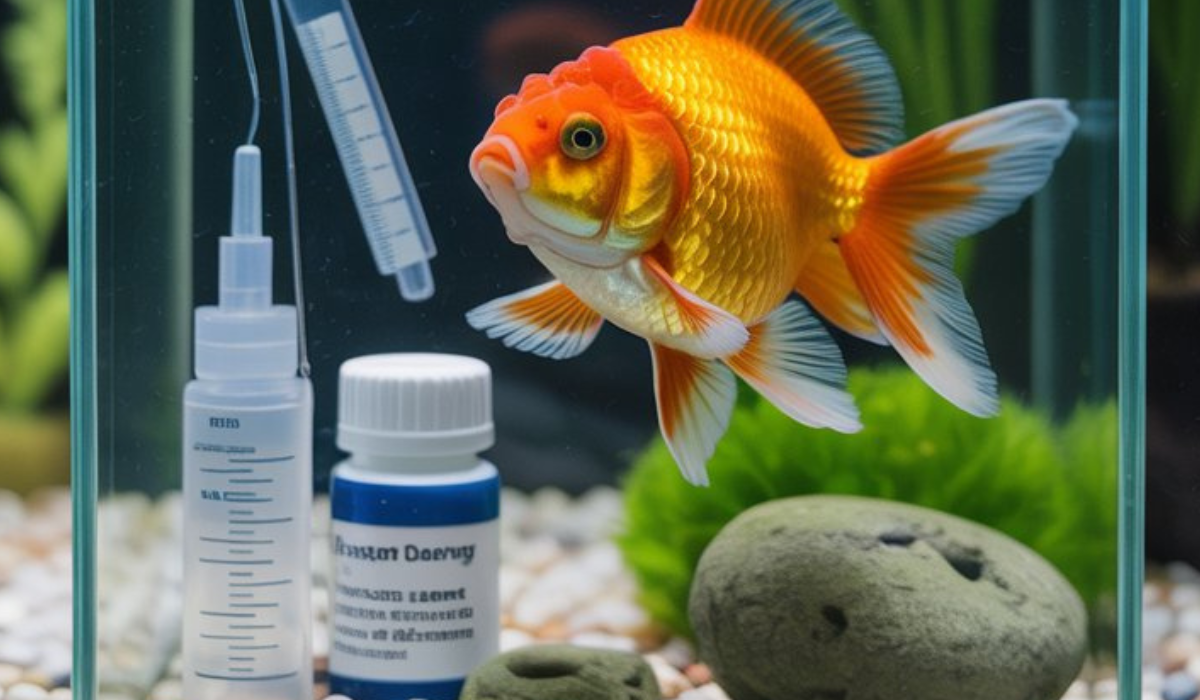Aquarium fish are delicate creatures that require balanced care, proper nutrition, and a healthy environment to thrive. Among the many health issues fishkeepers face, bloating in fish is one of the most concerning. When a fish’s abdomen swells abnormally, it often signals digestive issues, bacterial infections, parasitic invasions, or even organ failure. Without timely intervention, bloating can become life-threatening.
This article explores fish bloating treatment in detail, covering the causes, symptoms, and different methods of treatment, along with preventive strategies to keep fish healthy and stress-free.
What is Fish Bloating?
Fish bloating refers to an unusual swelling of the abdomen that persists beyond normal fullness after feeding. Unlike temporary belly expansion after a meal, bloating indicates internal imbalances. The swelling may result from fluid retention, constipation, egg-binding, or internal infections. Depending on the cause, bloating can be mild and manageable, or severe and fatal.
For fishkeepers, identifying the difference between overfeeding-related swelling and true bloating is crucial. Early detection and treatment greatly improve survival chances.

Causes of Fish Bloating
Understanding the causes of bloating helps in selecting the right treatment.
1. Overfeeding
Feeding more food than fish can digest leads to food accumulating in the digestive tract. This results in constipation, fermentation, and visible swelling.
2. Constipation
Low-fiber diets, excessive dry food, and lack of variety can cause constipation, which prevents normal waste passage.
3. Dropsy
Dropsy is a symptom of severe bacterial infection, usually related to poor water quality. It causes fluid retention and visible “pinecone scales,” where scales stick out from the body.
4. Parasitic Infections
Internal parasites such as nematodes or protozoa disrupt digestion and cause bloating. Fish may also lose weight despite having swollen bellies.
5. Egg-Binding
Female fish sometimes retain eggs instead of releasing them. This condition, known as egg-binding, causes abdominal swelling and stress.
6. Organ Failure
Liver or kidney malfunction prevents the body from regulating fluids properly, resulting in bloating.
7. Poor Water Quality
Toxins such as ammonia, nitrites, and nitrates weaken the immune system, making fish more vulnerable to infections that cause bloating.
Symptoms of Fish Bloating
Fish bloating is not always easy to spot in its early stages, but clear signs include:
- Abnormally swollen belly
- Loss of appetite
- Difficulty swimming or maintaining balance
- Lethargy and staying near the tank bottom or surface
- Scales sticking out (pinecone effect) in severe cases
- Stringy or absent feces
- Rapid gill movement and breathing difficulties
Monitoring these symptoms helps in deciding the appropriate treatment method.
Diagnosing the Cause of Bloating
Before beginning treatment, it’s important to diagnose the underlying cause. Consider the following steps:
- Check diet and feeding habits – Overfeeding or improper food may be the culprit.
- Test water parameters – Poor water quality is a common trigger.
- Observe behavior – Fish with parasites may rub against tank surfaces, while dropsy often comes with pineconing.
- Check other tank mates – If multiple fish are affected, the problem could be infectious or environmental.
- Identify fish type – Species like goldfish and cichlids are more prone to bloating.
A careful diagnosis helps prevent mismanagement and ensures the right treatment.
Fish Bloating Treatment

Treatment for fish bloating depends on the cause. Below are detailed methods for addressing different types of bloating.
1. Treatment for Overfeeding and Constipation
- Fasting: Stop feeding the fish for 24–48 hours to let the digestive system clear itself.
- High-Fiber Diet: Feed cooked, de-shelled peas or daphnia to promote bowel movement.
- Soaked Food: Pre-soak pellets or flakes before feeding so they do not expand inside the fish’s stomach.
- Moderate Feeding: Once the bloating subsides, resume feeding in small, controlled amounts.
2. Treatment for Dropsy
Dropsy requires aggressive treatment because it is usually fatal if untreated.
- Isolation: Move the affected fish to a hospital tank.
- Water Quality: Maintain pristine water conditions with regular water changes.
- Medication: Use broad-spectrum antibiotics such as kanamycin or erythromycin.
- Epsom Salt Bath: Add 1–3 teaspoons of Epsom salt per 5 gallons of water to reduce swelling.
- Supportive Care: Provide stress-free surroundings and minimize disturbances.
3. Treatment for Parasitic Infections
- Anti-Parasitic Medication: Use metronidazole, praziquantel, or medicated food to eliminate internal parasites.
- Quarantine: Keep infected fish separate until treatment is complete.
- Improved Diet: Feed immune-boosting foods rich in vitamins and fiber.
4. Treatment for Egg-Binding
- Stress Reduction: Keep female fish in a calm environment with minimal disturbances.
- Temperature Adjustment: Slightly increase water temperature to encourage spawning.
- Professional Assistance: In severe cases, veterinary intervention may be necessary.
5. Treatment for Organ Failure
There is no permanent cure for organ failure. Focus instead on:
- Maintaining clean water conditions
- Providing high-quality, easily digestible foods
- Reducing stress levels
- Ensuring a peaceful environment
Home Remedies for Fish Bloating
Aquarium keepers can also use some simple remedies at home:
- Fasting: A short fasting period clears digestive blockages.
- Feeding Peas: Soft, peeled peas work as a natural laxative.
- Epsom Salt Bath: Helps draw out excess fluids and reduce swelling.
- Temperature Control: Keeping the water temperature stable supports recovery.
Preventing Fish Bloating
Prevention is more effective than treatment. To avoid bloating:
- Balanced Diet – Provide a mix of pellets, flakes, frozen, and live foods.
- Avoid Overfeeding – Feed only what fish can eat within 2–3 minutes.
- Soak Dry Food – Pre-soak to avoid stomach expansion.
- Maintain Water Quality – Test water regularly and perform scheduled changes.
- Tank Hygiene – Clean filters and remove waste promptly.
- Quarantine New Fish – Prevents introduction of parasites or infections.
- Regular Observation – Check fish behavior daily to catch problems early.
Fish Species Prone to Bloating

Some species are more vulnerable:
- Goldfish: Sensitive digestive systems often lead to constipation.
- Betta Fish: Their small stomachs make them prone to overfeeding.
- Cichlids: Especially African cichlids, which can suffer from Malawi Bloat.
- Livebearers (guppies, mollies, platies): Susceptible to dropsy and parasites.
Fishkeepers should pay extra attention when caring for these species.
Long-Term Effects of Bloating
If untreated, bloating can:
- Cause organ damage
- Reduce quality of life
- Prevent normal swimming and feeding
- Lead to death in severe cases
Prompt treatment and preventive care reduce long-term risks significantly.
Frequently Asked Questions (FAQs)
Q1: Can bloating in fish go away on its own?
Mild bloating caused by overeating or constipation may resolve naturally with fasting. Severe bloating due to dropsy or parasites requires treatment.
Q2: How do I treat constipation in fish?
Fast the fish for 24–48 hours, then feed peeled, boiled peas or high-fiber foods like daphnia.
Q3: What is the best treatment for dropsy?
Isolate the fish, improve water quality, administer antibiotics, and use Epsom salt baths to reduce swelling.
Q4: Can fish bloating spread to other fish?
Bloating itself is not contagious, but if caused by bacterial or parasitic infections, it can spread. Quarantine is recommended.
Q5: Are Epsom salts safe for all fish?
Epsom salts are generally safe when dosed correctly, but sensitive species should be monitored carefully.
Q6: How can I prevent bloating in betta fish?
Feed small portions, avoid overfeeding dry food, and provide a balanced diet with frozen or live foods.
Q7: What is Malawi Bloat?
Malawi Bloat is a condition in African cichlids caused by protozoan infections or poor diet. It results in swelling, loss of appetite, and rapid breathing.
Q8: Should I euthanize a fish with severe bloating?
Euthanasia should only be considered if the fish is suffering greatly and unresponsive to treatment. Always attempt proper care first.

